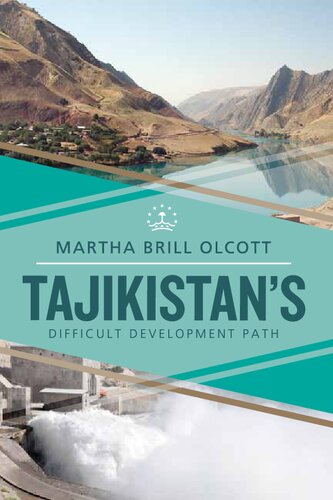

Most ebook files are in PDF format, so you can easily read them using various software such as Foxit Reader or directly on the Google Chrome browser.
Some ebook files are released by publishers in other formats such as .awz, .mobi, .epub, .fb2, etc. You may need to install specific software to read these formats on mobile/PC, such as Calibre.
Please read the tutorial at this link: https://ebookbell.com/faq
We offer FREE conversion to the popular formats you request; however, this may take some time. Therefore, right after payment, please email us, and we will try to provide the service as quickly as possible.
For some exceptional file formats or broken links (if any), please refrain from opening any disputes. Instead, email us first, and we will try to assist within a maximum of 6 hours.
EbookBell Team

4.1
60 reviewsTajikistan teeters on the brink of failure. This mountainous and landlocked country, the poorest in Central Asia, confronts the challenges of good governance and economic survival. These domestic struggles become even more problematic as international forces prepare to withdraw from neighboring Afghanistan, leaving Central Asian countries to ensure regional stability.
In Tajikistan's Difficult Development Path, Martha Brill Olcott traces the political, economic, and social change following the country's independence and international efforts to avert state collapse. The Tajik government's commitment to reform has been inconsistent, and substantial foreign assistance provided since the end of the country's civil war has not led to the desired economic and political development.
Olcott concludes that the Tajik leadership faces a serious dilemma: fully embrace reform or continue moving toward state failure. Tajikistan's decision will have very real implications for this troubled region.